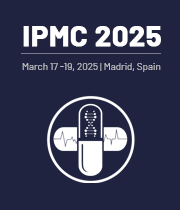Title : Importance of personalized precision nutrition and functional foods in healthy aging
Abstract:
Health preservation and disease prevention are central objectives for establishing a healthy lifestyle and nutrition. Molecular mechanisms of aging, premature aging and the development of aging correlated complex diseases are step by step analyzed by scientific disciplines addressing the hallmarks of aging. Studies using the epigenetic clock show the beneficial effects of fasting and diets on healthy aging and recently the definition of ageotypes indicates personal different drivers of aging. The concepts of healthy aging and attempts to increase longevity have resulted in remarkable innovations in precision medicine and precision nutrition. The highly individual regulation of gene expression and DNA integrity by environmental factors and nutrition is shown in the developments of genetics and epigenetics. Also, the detailed characterization of personal aspects of the human microbiome shows the need for systemic OMIC approaches to understanding pathological mechanisms and markers for them. The fields of nutrigenetics and nutri-epigenetics are analyzing mechanisms and markers in this area.
The use of molecular markers enables the detection of ongoing pathological mechanisms and interventions already before the onset of symptoms. Medical and nutritional- or dietary prevention and intervention are more often using personalized aspects. These developments result in preventive and personalized health care. Markers from the areas of genetics, epigenetics, microbiota, gene expression, and metabolomics need to be integrated for the assessment of optimized personal pre- and intervention. Medical drugs, functional foods, and nutrition are more and more used for personalized treatment of identified molecular mechanisms of concern. The terms personalized medicine and precision medicine or nutrition are somehow overlapping.
A worldwide fast increased awareness of ways for health preservation or recently the resistance against viral infections have boosted the development of functional foods and nutritional concepts. This includes also science-based ways of caloric restriction and fasting. Selected bacteria, algae, cells, or plants and their metabolites or extracts are screened for health-promoting effects and developed into functional foods. We report that the analysis of a combination of genetic-, CPG methylation- and miRNA markers in liquid biopsy samples can detect and monitor early cancers and the analysis of genetic, CPG methylation, and miRNA markers in blood spots can indicate personal dispositions to diets and sport and help to monitor the personal effects of epigenetic active nutraceuticals such as EGCG, Phloretin or anthocyanins on aging relevant molecular mechanisms.


